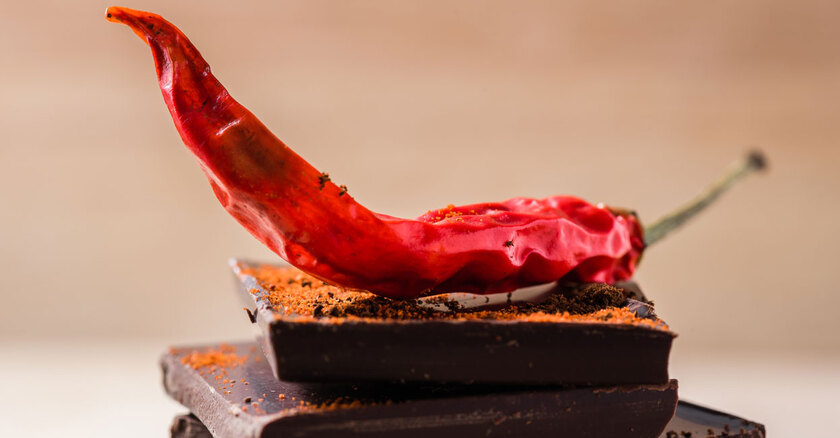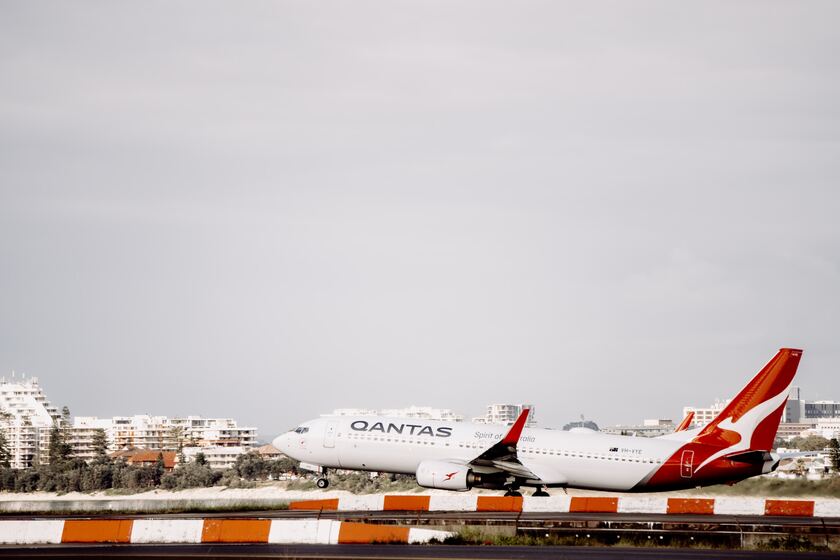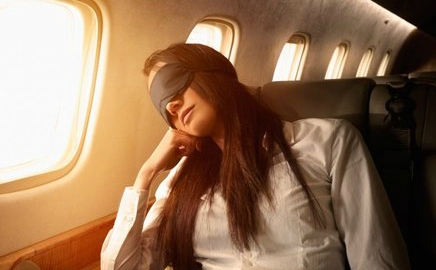Most frequent flyers have a few personal tricks to avoid jet lag—the fatigue caused by jet lag after a long flight. The most common methods include exercising as soon as you land; skipping meals on the flight; and avoiding alcohol. Qantas, Australia's 11th-largest airline in the world, has offered some of the best tips for resetting your circadian rhythm during travel.
This airline has just released a multi-year study on how to change in-flight habits to reduce “jet lag.” The study indicates that proper lighting, sufficient sleep, and a structured eating schedule, as well as meals with specific ingredients, can significantly improve fatigue. Foods recommended as particularly helpful include chili peppers and chocolate.

Chili peppers and chocolate help reduce feelings of fatigue caused by jet lag.
For this study, Qantas collected data on a test flight from New York to Sydney (a 22-hour flight). On the test flight, 23 volunteer passengers wore biometric tracking devices and recorded their feelings in the week before the flight, during the flight, and for two weeks after the flight.
According to recently published results, volunteers who followed a suitable schedule and ate appropriate food during their flight experienced better quality sleep. Simultaneously, fatigue from jet lag was significantly reduced upon arrival, and they performed better at work and had a more positive experience in the two days following the flight.
A key component of the adjusted schedule is timing in-flight meals to align with the body's internal circadian rhythm and serving dishes that promote the brain's production of tryptophan, an amino acid linked to drowsiness. These dishes include easily digestible fish and chicken meals, soups with added chili peppers to help with fast-acting carbohydrates, and dairy-based desserts like chocolate.

Qantas is designing Airbus A350 aircraft that will operate on ultra-long-haul routes.
Other helpful features include customizable cabin lighting schedules designed to help passengers adapt to the time zone at their destination, as well as the ability to travel across territories. In fact, Qantas is designing its Airbus A350s for its ultra-long-haul routes to have a dedicated wellness area where economy class passengers can perform stretching and other exercises guided by video screens, accompanied by a healthy snack.
Peter Cistulli, Professor of Sleep Medicine at the University of Sydney, who supported the airline, said: “The research team was very multidisciplinary, comprising more than 10 researchers from medicine, science and engineering working on this project. This included sleep researchers, biologists, nutritionists and exercise experts. No airline has ever done this type of research before. The initial findings have given us optimism that we can make a real difference to the health and well-being of international travelers.”
The airline also said it is conducting parallel studies on the health of flight crews on ultra-long-haul flights, but has not yet released the results of those studies. While the length of the upcoming direct flights seems challenging, Qantas says the new routes will reduce total travel time by 3 hours compared to journeys with layovers.

 VI
VI EN
EN



























